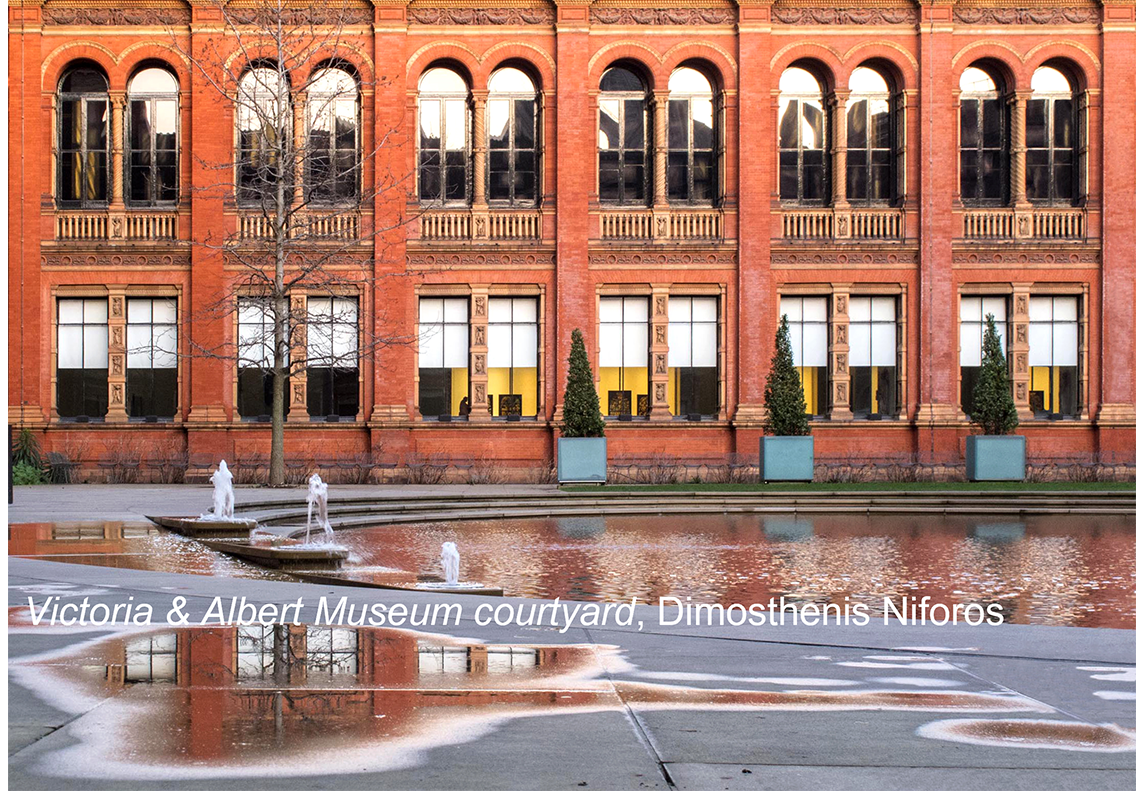
Applications are now open for a studentship at UCL in collaboration with the V&A Museum to explore technical solutions for how museums can decarbonise and become more energy resilient in the face of climate change.
Supervisors: Dr Scott Orr of UCL Institute for Sustainable Heritage, Dr Sung-Min Hong of UCL Institute for Environmental Design and Engineering, Melissa Painter of V&A Museum
Funding: The studentship will cover UK course fees and an enhanced tax-free stipend of approx. £22,000 per year for 4 years along with a substantial budget for research, travel, and centre activities.
Fees: ERBE CDT has very limited funding for applicants requiring coverage of overseas fees. We advise all interested applicants to be familiar with the changes to EU and International Eligibility for EPSRC/UKRI funded studentships
Dates: 4 years from September 2023
Context and Project description:
Museums are a crucial component of society, with a mandate that balances education and access with management of cultural assets. Further, museum buildings tend to hold heritage value and some form of protection. This creates a challenging situation: one in which buildings are difficult to retrofit to improve energy efficiency and have bespoke (often stringent) demands on performance. The museum sector is nascent in developing sustainable approaches, particularly in the context of energy resilience, including impacts of climate change on performance, operational priorities, and long-term adaptation strategies.
Studentship aims:
This project will bring together expertise in energy benchmarking and heritage science to explore how resilient museum buildings are in the face of future climate and energy scenarios, taking V&A facilities as a case study. Through a combination of energy performance analysis, building simulation, and stakeholder engagement, it will develop an understanding of the opportunities for reducing energy demand through retrofit, improving building services and resilience, and delivering clean energy through on-site or off-site renewable technologies.
Person specification:
We are looking for an enthusiastic and passionate team member. A strong candidate would have experience with building physics and technical aspects of buildings and/or environmental engineering, with strong quantitative and analytical skills and an openness to drawing on qualitative data and approaches. A diverse range of educational backgrounds would be suitable for this project, including, but not limited to, environmental engineering, civil engineering and building services, sustainability, heritage science, statistics, and data science. The following are desirable:
– Experience and/or interest in building physics modelling software
– Ability to program, specifically for large-scale data processing and analysis
– Appreciation for culture and/or heritage
A minimum of an upper second-class UK Bachelor’s degree and a Master’s degree, or an overseas qualification of an equivalent standard, in a relevant subject, is essential. Exceptionally: where applicants have other suitable research or professional experience, they may be admitted without a Master’s degree; or where applicants have a lower second-class UK Honours Bachelor’s degree (2:2) (or equivalent) they must possess a relevant Master’s degree to be admitted.
Applicants must also meet the minimum language requirements of UCL
Applicants should be familiar with the changes to EU and International Eligibility for UKRI funded studentships.
How to apply
All CV’s and Cover Letters must be completely anonymised and not contain any references to protected characteristics, such as gender, ethnicity or race.
Please submit your application by email to the UCL ERBE Centre Manager (bseer.erbecdt@ucl.ac.uk) with Subject Reference: 4-year PhD studentship in ‘The crow and the pitcher: towards decarbonisation and energy resilience of the museum sector’
The application should include each of the following:
1) An anonymised Cover Letter clearly stating why you are applying and how your interests and experience relate to this project, and your understanding of eligibility according to these guidelines: EU and International Eligibility for EPSRC/UKRI funded studentships
2) An anonymised CV
3) Complete the CDT EPSRC Eligibility Questionnaire and EDI Questionnaire via the linked Microsoft Forms.
Only shortlisted applicants will be invited for an interview.
• For the interview shortlisted candidates will be asked to show proof of their degree certificate(s) and transcript(s) of degree(s), and proof of their fees eligibility.
• The interview panel will consist of the project’s academic supervisors at UCL and a representative of the ERBE CDT Academic management. The interview will include a short presentation from the candidate on their ideas of how to approach this PhD project.
Following the interview, the successful candidate will be invited to make a formal application to the UCL Research Degree programme for ERBE CDT.
Deadline for applications: 31st May 2023 @ 23:59 (UK time)
Interviews week commencing: TBC
For further details about the admission process, please contact: bseer.erbecdt@ucl.ac.uk
For any further details regarding the project, contact Dr Scott Orr, scott.orr@ucl.ac.uk
You will be undertaking this project:
- In UCL at the main (Bloomsbury) campus as part of the new EPSRC-SFI Centre for Doctoral Training in Energy Resilience and the Built Environment (ERBE CDT). This is a collaboration between UCL, Loughborough University and Marine and Renewable Energy Ireland (MaREI). For more information please see http://erbecdt.ac.uk
